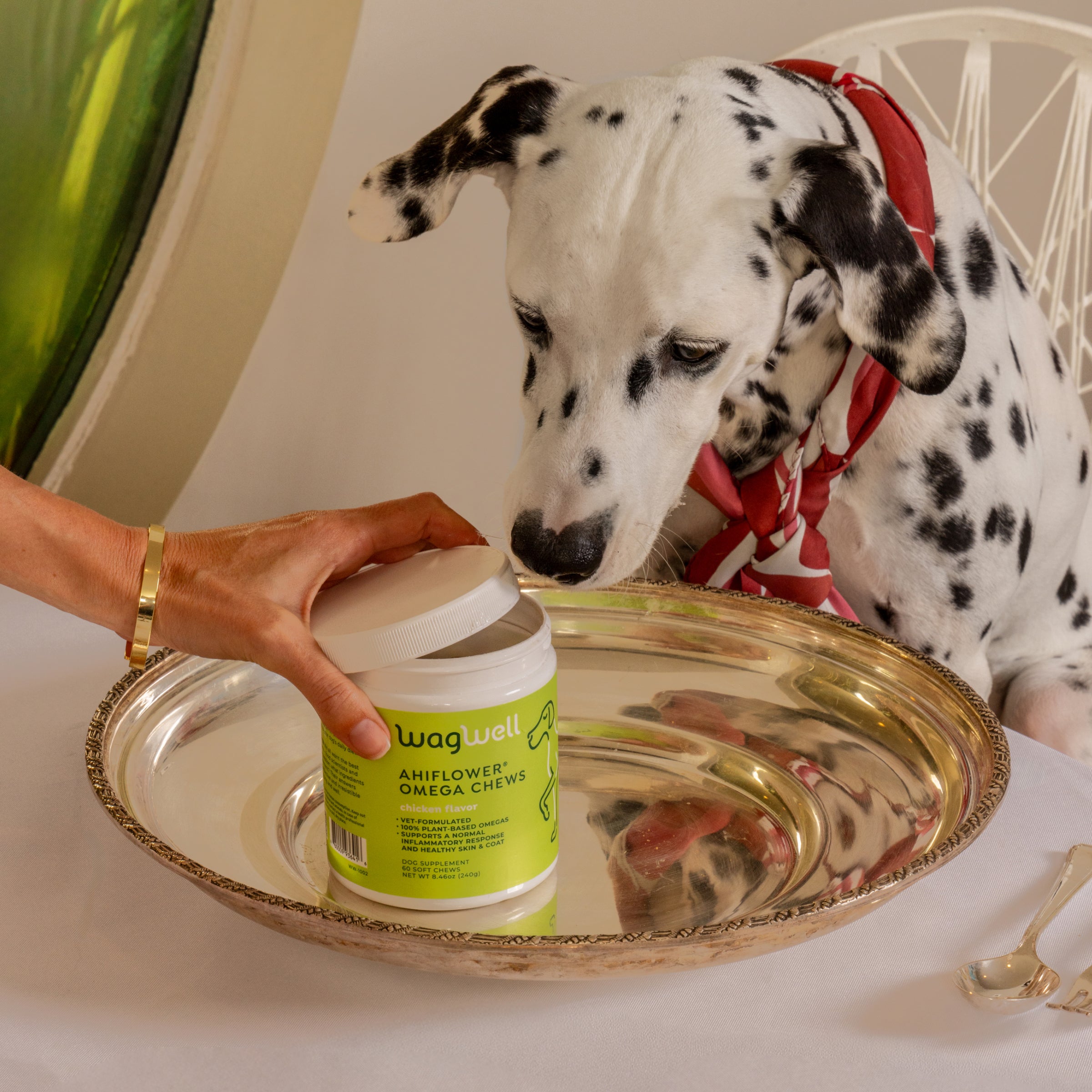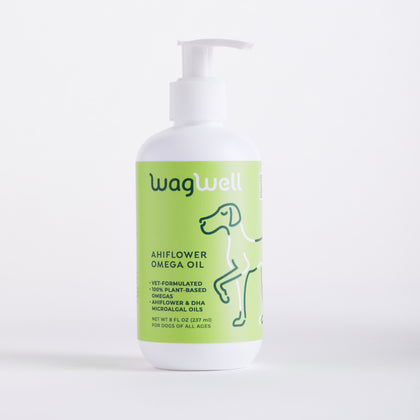

Table of contents
If you’re like me, you might have said “My dog needs that, why?” the first time you heard about dog supplements. My dog is healthy, eats good food, gets regular vet check-ups. What is the need?
Well, as I learned very quickly, the need is for a complete and balanced diet. Every dog needs different amounts of the nutrients that fuel us, making most foods unable to cater to exactly what your dog requires for a robust diet. How do you fix that? Supplementation.
Identifying the Problem Child

Let’s start with the issue: your dog’s food. Now, I’m not blaming your choices. I’m telling you that no one is perfect. When brands formulate their lines of food, they’re aiming to provide a baseline level of nutrients for the average dog. As we established above, your dog isn’t average.
Certain factors such as age, breed, and health conditions can impact their dietary requirements. A senior dog with joint stiffness may need additional anti-inflammatory support, while a high-energy working breed might require higher protein levels. Even premium brands and alternative formats like freeze-dried or fresh food can be improved by fine-tuning with supplementation.
So, how do you address these gaps without completely overhauling your dog’s diet? We all know not to change food suddenly. Sudden diet changes can cause digestive upset, and trial-and-error feeding can be expensive and time-consuming. Instead of switching brands over and over, searching for the perfect formula, supplementation lets you address nutritional deficiencies without disrupting their diet.
Dog Supplements for Every Pup
Before you can search for what’s best for your dog, you’ll need to understand why they require certain nutrients. These essential nutrients help support everything from joint mobility and digestion to skin health and immune function. By identifying key areas where supplementation can enhance your dog’s well-being, you can make informed decisions about what to add to their routine. Below are some foundational supplements that nearly every dog can benefit from.
Omega Fatty Acids
You might be surprised to learn that omega fatty acids (OFAs) are one of the most important nutrient groups that most diets lack. OFAs most notably improve skin and coat health, but they do a lot more for the body. The circulatory system (heart), nervous system (brain), gastrointestinal tract (digestion), and endocrine system (hormones) all benefit from these powerful nutrients.
The three main omega fatty acids are:
Eicosapentaenoic Acid (EPA): An anti-inflammatory omega-3 fatty acid, commonly found alongside DHA. It occurs naturally in marine sources such as salmon and cod.
Docosahexaenoic Acid (DHA): An anti-inflammatory omega-3 fatty acid, commonly found alongside EPA. It occurs naturally in marine sources such as salmon and cod.
Alpha-linolenic Acid (ALA): An anti-inflammatory omega-3 fatty acids, commonly found in plant-based omega sources such as chia seed, flax seed, and canola oil. When digested, this omega-3 is able to minimally convert into EPA.
Hip & Joint Support
If you have a senior dog, hip & joint supplements might already be in your routine. But did you know that adult dogs can benefit from the additional support? Many hip and joint supplements work as a preventative, meaning you could spare your pup from the impact deteriorating joints will have on your dog’s aging body.
Common ingredients in a good mobility supplement will include glucosamine, chondroitin sulfate, and methylsulfonylmethane (MSM). These potent ingredients will work to improve the quality of your dog’s joint fluid, as well as strengthen their cartilage.

Digestive Health
Foods that have been highly processed, A.K.A. blasted with heat, lose their nutritional integrity. This means that any beneficial fruits, vegetables, and even some vitamins and minerals. Fiber and pre-, pro-, and postbiotics are valuable additions to your dog’s diet.
Fiber comes in two forms: insoluble and soluble. Insoluble fiber doesn’t dissolve in water, this allows it to support movement within the digestive system and relieves constipation. Soluble fiber does dissolve in water and helps to lower cholesterol and blood sugar.
Prebiotics feed the gut’s “good” bacteria. Most prebiotics are a type of fiber, the most common types being resistant starches, inulin, and pectin.
Probiotics are live microorganisms that metabolize and ferment the prebiotics in the gut. This metabolism and fermentation creates by-products that do a number of things for your dog’s body.
Postbiotics are the “waste” left behind after your dog has digested both prebiotics and probiotics. Postbiotics help to maintain the balance of bacteria in your dog’s gut by slowing the growth of harmful bacteria.
Calming Aides
No one likes to feel anxious. Depending on the type, anxiety can wreak havoc on the body’s nervous system, increasing the chance of a dog developing reactive or aggressive tendencies. Luckily, calming aids are a great way to support your dog’s emotional well-being. When stress levels are managed, dogs are better able to process their surroundings, respond to training, and engage positively with their environment.
WagWell’s Calming Chews contain a potent blend of ingredients, including full spectrum hemp oil, Phellodendron Bark Extract, Melatonin, chamomile and more. These ingredients work in harmony to soothe your dog’s nervous system and can be especially beneficial for dogs that struggle with separation anxiety, noise sensitivities, or general nervousness.
Dental Health
Did you know that you’re supposed to brush your dog’s teeth? Dental health is important, as that is where digestion starts. Bad bacteria introduced through the mouth can cause tooth and gum diseases that will lead to chronic pain and may force you to consider extractions if the issue worsens.
It can be a struggle to brush a dog’s teeth, especially if they haven’t been exposed to that stimuli in the past. Some dogs might attempt to bite you, lick all the meat-flavored toothpaste, or you might get lucky, and your dog will let brush away. An easy additive to their food or water is a dental powder/supplement. These products will contain purposeful ingredients that target specific dental health concerns.
Reducing Plaque: Plaque is a sticky film of bad bacteria that forms on teeth and will eventually form into tartar. Dental powders will contain enzymes that break down this biofilm.
Tartar Reduction: Some dental health supplements will contain mild abrasives like sodium bicarbonate and seaweed to reduce tartar over time.
Freshen Breath: Natural breath-freshening ingredients like parsley, mint, and chlorophyll neutralize bad odors at the source, rather than masking the smell.
Closing Remarks
Incorporating supplements into your dog’s routine isn’t about replacing their food—it’s about enhancing their overall well-being. From joint support to digestive health, calming aids to omega fatty acids, the right supplements can fill the gaps in their diet and help them thrive at every stage of life. Every dog is unique, and by understanding their specific needs, you can make informed choices that support their longevity and happiness. Whether you’re looking to prevent future health issues or address current concerns, supplementation is a simple yet powerful way to ensure your dog lives their best, tail-wagging life.





